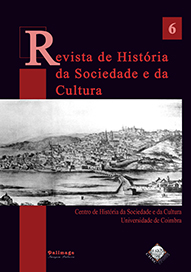General Studies Funding: free tuition or compulsory fees. Some views
DOI:
https://doi.org/10.14195/1645-2259_6_4Keywords:
University, Tuition fees, Medieval cultureAbstract
During the Middle Ages, the General Studies were faced with a dilemma: to provide free education or require that students pay a fee to access knowledge. In effect, it was a difficult choice and as such caused a lot of tension and conflict, which at times progressed into violence, verbal and other forms.
This debate arose from the confrontation between two opposing concepts of education: one arising from the clerical and feudal world, the other of urban and bourgeois origin. In the first students sought mostly an ecclesiastic "career", whereas in the second they envisaged occupying a public office, preferable with good pay. The first form of education had been legally founded on the papal decree of Alexander III in the Lateran Council held in 1179, which had established the gratuity of education; the second model had been inspired by the statutes of the urban masters corporations - universitates - from which the General Studies drew not only its name (university), but also its statutory structure.
The polemical debate between free and paid education gains expression when two economic concepts collide with each other in the Western Middle Ages: on the one hand, the declining feudal nobility, the leading players in an economy of waste and squandering, and on the other an urban bourgeoisie, growing, active, determined, powerful and advocate of an investment economy.
In brief, through this heated debate we will seek to understand how the ideological changes in Science (perceived as a treasure that needs guarding and hiding) and Knowledge, which requires investment, enhancement and which should be put at the disposal of all, took place.
Downloads
Downloads
Published
Issue
Section
License

This work is licensed under a Creative Commons Attribution 4.0 International License.
Authors retain copyright and grant the journal right of first publication with the work simultaneously licensed under a Creative Commons Attribution License that allows sharing the work with recognition of authorship and initial publication in Antropologia Portuguesa journal.











